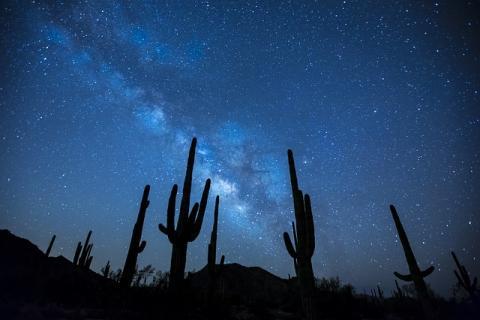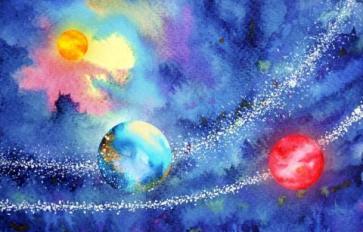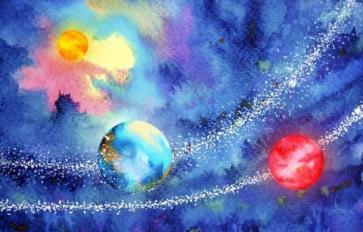
We are living in a time when industrialization is the norm, traffic is just a part of the day, and buying what we need instead of making it is totally acceptable. Light pollution can often blur day and night, and affect the natural processes of the world. . Light pollution is the artificial light that shines upwards and downwards, creating a skyglow which fades out the stars from above and also disorientating wildlife and insects down below.
As many urban dwellers speed through the day on rubber tires, most tend to miss out on the lush, true beauty of the natural world. Sure, there are the sweet little pleasures, like the sunflower waving along side of the highway or the sounds of bats chirping at night. But the wild and native green space is slowly disappearing. With every square inch of a newly developed community, high-rise, skyscraper and retail shopping center, comes artificial lights.
As most of us sustainable, green thinkers forge ahead in this expanding world, we must remember our journey after the sun goes down. In general, the more artificial light that surrounds you, the fewer stars you can see.
But what does this mean to the people engulfed in the plight to a sustainable future? Here are just a few reasons why dark skies are essential to a healthy planet.
Support the Ecosystem
Many species rely on the night sky to communicate, navigate, and mate while in the dark. A few affected species include bats, fireflies, hatchling sea turtles, migratory birds and tree frogs. Artificial light has impacted many aspects of animals’ habits, including feeding and reproduction. Fireflies are on a decline due to many manmade reasons, including light pollution
Improve Human Health
Humans need darkness as well -- not only for the breathtaking view and wonder of the universe, but also for our health. The biological clock of a human follows the circadian cycle. This cycle includes our daily routine, active during the day and resting during the night. An excess of artificial light encourages the ability to break this cycle much easier than if there were no artificial light at night. Artificial light also has been proven to decrease human melatonin, which leads to health risk. Moreover, these scientific studies have linked artificial light to depression, sleep disorders, obesity and even cancer.
Provide Energy
Energy is a huge commodity. We need it to stay warm, keep cool, charge up our smartphones…the list goes on and on. Our appreciation for the importance of energy in our lives should encourage us not to be wasteful. Whether it’s LED or just an old fashioned light bulb, be sure to use it only when you need it. Over illumination is experienced to a large degree at night and even occurs during the day. For instance, offices, retail stores and other establishments that have plenty of windows to let the sunshine in yet still turn on the overhead fluorescent lights are just being wasteful in energy consumption.
Allow for Wonder
Besides the scientific essentials on the importance of the night sky, we must address our imagination, wonder and curiosity. Looking at a night sky full of stars connects humanity to the universe. In fact, it’s our only window to the universe. From the ancient stories of constellations to the billions of galaxies swirling around, we need the night sky to feel connected.
Make Your Home an Example
There are ways to be mindful at home when it comes to artificial outdoor lighting. Safety always comes first, but if you don’t need lights, then don’t use them. Be a voice in your community about the importance of the night sky to the planet and people. Get involved in dark sky associations. And last but not least, research best installation techniques if you find yourself needing new outdoor lighting fixtures.








